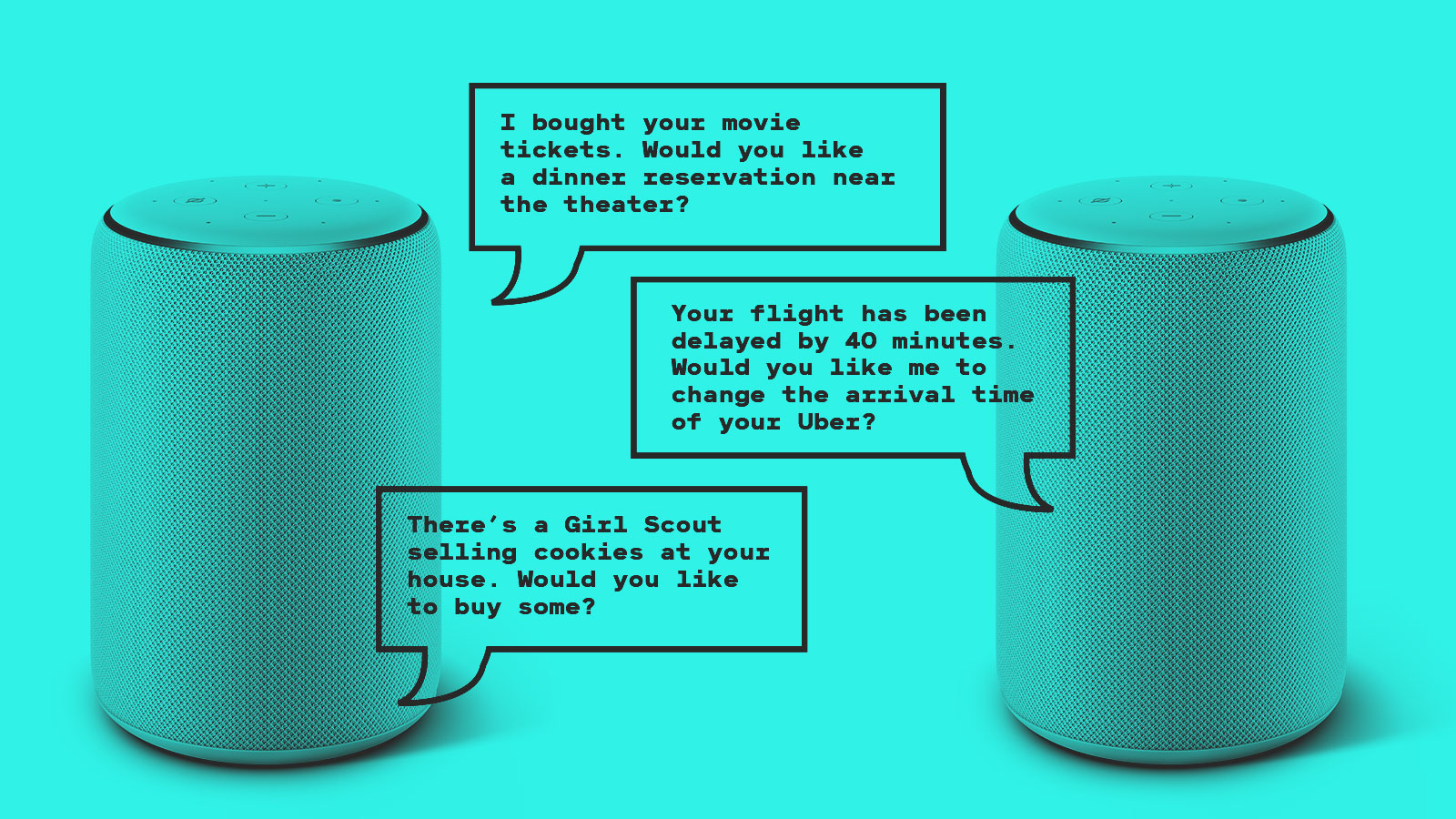The AI Assistant Battle!
/filters:no_upscale()/articles/build-deploy-ai-assistants/en/resources/10image011-1602098168289.jpg)
Technology has revolutionized the way we live and interact with our devices. One of the most significant advancements in recent years is the rise of AI assistants. These digital assistants, powered by artificial intelligence, are designed to understand and assist users in various tasks. They can perform a wide range of functions, from answering questions and setting reminders to controlling smart home devices and providing personalized recommendations.
What are AI Assistants and their capabilities
AI assistants, such as Siri, Google Assistant, Amazon Alexa, and Microsoft Cortana, are virtual personal assistants that utilize artificial intelligence algorithms to provide real-time assistance to users. These advanced computer programs can understand natural language commands and respond accordingly. They can perform tasks like sending messages, making phone calls, searching the web, playing music, and even booking appointments.
What sets AI assistants apart is their ability to learn and adapt to individual users over time. Through machine learning and data analysis, they can understand user preferences and tailor their responses and recommendations accordingly. This personalized experience enhances user satisfaction and streamlines everyday tasks.
The importance of AI Assistants in our daily lives
AI assistants have become an integral part of our daily lives, helping us stay organized, informed, and connected. They provide a convenient way to access information and complete tasks without the need for manual input. With a simple voice command, users can effortlessly set reminders, check the weather, or get directions to a specific location.
Moreover, AI assistants contribute to increased productivity and efficiency. They can automate repetitive tasks, freeing up time for users to focus on more important activities. For businesses, AI assistants have the potential to streamline customer service operations, providing instant support and enhancing the overall customer experience.
In addition, AI assistants have the capacity to improve accessibility for individuals with disabilities. Voice-based interactions offer an inclusive way for people with mobility challenges or visual impairments to interact with technology and access its benefits.
As technology continues to advance, the capabilities of AI assistants will only expand, offering even more functionalities and possibilities. These digital companions have transformed the way we interact with technology, making our lives easier, more

Blog Section:
Amazon Alexa
Features and Capabilities of Amazon Alexa
Amazon Alexa is a voice-controlled virtual assistant developed by Amazon. This powerful AI assistant is capable of performing a wide range of tasks, making it a valuable addition to any household or workplace. Alexa can answer questions, provide weather updates, set alarms and reminders, play music, and even control compatible smart home devices. With its Natural Language Processing technology, Alexa understands and responds to commands effortlessly. It continues to learn and improve its responses over time, making it a reliable and efficient virtual assistant.
Integration with Smart Home Devices
One of the most impressive features of Amazon Alexa is its seamless integration with smart home devices. Alexa can control devices such as lights, thermostats, locks, and cameras, allowing you to easily automate and monitor your home. Whether you want to dim the lights, adjust the temperature, or even check who is at the door, Alexa can do it all with a simple command. With the ability to connect with various brands and products, Alexa offers the flexibility to create a smart home ecosystem that suits your needs.
Overall, Amazon Alexa offers a convenient and efficient way to control your smart home devices and access a wide range of information and entertainment. Its user-friendly interface and extensive capabilities make it a top choice for those seeking an AI assistant that can simplify their daily tasks and enhance their overall experience.

The AI Assistant Battle!
Overview of Google Assistant and its features
Google Assistant is an AI-powered virtual assistant developed by Google. It offers a wide range of features and capabilities to assist users in their daily tasks and provide valuable information. From answering questions and setting reminders to playing music and controlling smart home devices, Google Assistant can do it all. With its advanced Natural Language Processing technology, it can understand and respond to commands in a conversational manner, making interactions more natural and seamless.
Integration with Google Ecosystem and Devices
One of the key advantages of Google Assistant is its seamless integration with the Google ecosystem and a variety of devices. Google Assistant can be accessed through smartphones, smart speakers, smart displays, and even smart TVs. It can tap into Google’s vast knowledge base to provide accurate and up-to-date information. Additionally, it works harmoniously with other Google services like Google Calendar, Gmail, and Google Maps, creating a cohesive and efficient user experience.
In the battle of AI assistants, Google Assistant stands out with its extensive features and deep integration with the Google ecosystem. It continues to evolve and improve, providing users with an intelligent and personalized assistant that can truly

Apple Siri
Introduction to Apple Siri and its functionalities
Apple Siri is a virtual assistant developed by Apple that utilizes artificial intelligence technology to provide assistance to users. Siri is capable of performing a wide range of tasks, including setting reminders, sending messages, making calls, and providing information on various topics. With its advanced voice recognition abilities and natural language processing, Siri can understand and respond to complex commands in a conversational manner, making interactions with the assistant more seamless and intuitive.
Integration with Apple devices and services
One major advantage of Siri is its integration with Apple devices and services. Siri can be accessed through iPhones, iPads, Macs, Apple Watches, and even the Apple HomePod. This integration allows users to have a consistent experience across all their Apple devices, with Siri being able to access and interact with apps, services, and data seamlessly. Additionally, Siri can integrate with various Apple services like Apple Music, Apple Maps, and iCloud, enabling users to easily control their devices and access their data using voice commands.

Microsoft Cortana
Overview of Microsoft Cortana’s Features and Capabilities
Microsoft Cortana is a virtual assistant developed by Microsoft that utilizes artificial intelligence to provide assistance to users. It offers a wide range of features and capabilities, including setting reminders, scheduling appointments, answering questions, and even making recommendations based on user preferences. With its advanced natural language processing abilities, Cortana can understand and respond to complex queries in a conversational manner, making interactions more intuitive and seamless. Additionally, Cortana can perform tasks across multiple devices, allowing users to access their assistant from their Windows PCs, smartphones, and even Xbox consoles.
Integration with Microsoft Products and Services
One major advantage of Cortana is its deep integration with Microsoft products and services. Cortana can access and interact with various Microsoft applications, such as Outlook, OneDrive, and Microsoft Teams. This integration enables users to easily manage their emails, files, and collaborate with colleagues using voice commands. Cortana also integrates with Windows features, allowing users to control system settings, search for files, and launch applications, all with voice commands. Furthermore, Cortana can provide personalized recommendations and suggestions based on user preferences and habits, making it a valuable assistant across the

Samsung Bixby
Features and capabilities of Samsung Bixby
Samsung Bixby is an advanced virtual assistant created by Samsung. This AI-powered assistant offers a range of features and capabilities to enhance the user experience. Bixby can perform tasks such as setting reminders, sending texts, making phone calls, and even controlling smart home devices through voice commands. It also offers personalized recommendations based on user preferences and habits.
Integration with Samsung devices and applications
One of the major advantages of Samsung Bixby is its seamless integration with Samsung devices and applications. Bixby can access and control various Samsung devices, including smartphones, Smart TVs, and refrigerators. It also integrates with popular Samsung applications like Samsung Health and Samsung Pay, allowing users to easily manage their health goals or make payments using voice commands. With its deep integration, Samsung Bixby provides a cohesive and convenient user experience across Samsung’s ecosystem of devices and services.

The AI Assistant Battle is heating up as the major tech giants compete to offer the best virtual assistant experience. Let’s compare the key features and strengths of Amazon Alexa, Google Assistant, Apple Siri, Microsoft Cortana, and Samsung Bixby.
Comparing the key features and strengths
Each AI assistant has its own unique set of features and strengths. Amazon Alexa is known for its extensive range of smart home integrations and its ability to order products from Amazon with simple voice commands. Google Assistant excels in its ability to search and provide relevant information, thanks to its powerful search engine capabilities. Apple Siri is highly integrated with Apple devices and applications, making it a convenient choice for Apple users. Microsoft Cortana offers seamless integration with Microsoft products and services, making it a valuable tool for productivity tasks. Samsung Bixby stands out with its deep integration with Samsung devices and applications, providing a cohesive user experience across Samsung’s ecosystem.
User interface and ease of use
When it comes to user interface and ease of use, all the AI assistants strive to offer a simple and intuitive experience. However, there are subtle differences in their interfaces and how users interact with them. Some assistants prioritize voice commands, while others also offer touch and visual interfaces. Ultimately, the ease of use depends on individual preferences and the compatibility with the user’s specific devices and services.
As the AI assistant battle continues, users can expect to see further developments and advancements in these virtual assistants, as each strives to provide the most seamless and personalized experience possible.

Privacy and Security Concerns
Discussion on the privacy and security issues associated with AI Assistants
The increasing presence of AI assistants in our daily lives raises valid concerns about privacy and security. These virtual assistants often collect and store personal information, which can be worrying for users who value their privacy. There is also the risk of these devices being hacked or manipulated to extract sensitive data.
Measures taken by companies to address these concerns
To address these concerns, companies have implemented various measures to enhance privacy and security. They have strengthened encryption protocols to protect user data and provide more transparency regarding data storage and usage. Additionally, AI assistants now allow users to review and control their data and provide options to limit data collection. Companies are also continuously updating their systems to address vulnerabilities and ensure the highest level of security.
While these measures are reassuring, it is essential for users to remain cautious and be mindful of the information they share with AI

Conclusion
In conclusion, the increasing presence of AI assistants in our daily lives brings both convenience and concerns. While these virtual assistants offer convenience and efficiency, there are valid privacy and security concerns associated with them. Companies have taken measures to address these concerns by enhancing encryption protocols, providing transparency, and allowing users to review and control their data. However, it is still important for users to be cautious and mindful about the information they share.
Branding plays a vital role in differentiating your business from competitors. It involves creating a unique identity through values, story, and other assets that resonate with your target audience. By utilizing branding effectively, you can establish a strong and reliable brand identity that captures the essence of your business.
When it comes to choosing the right AI assistant for your needs, consider factors such as compatibility with your devices, functionality, and privacy features. Research and compare different options to make an informed decision.
In the battle of AI assistants, it ultimately boils down to personal preference and the specific needs of an individual or
